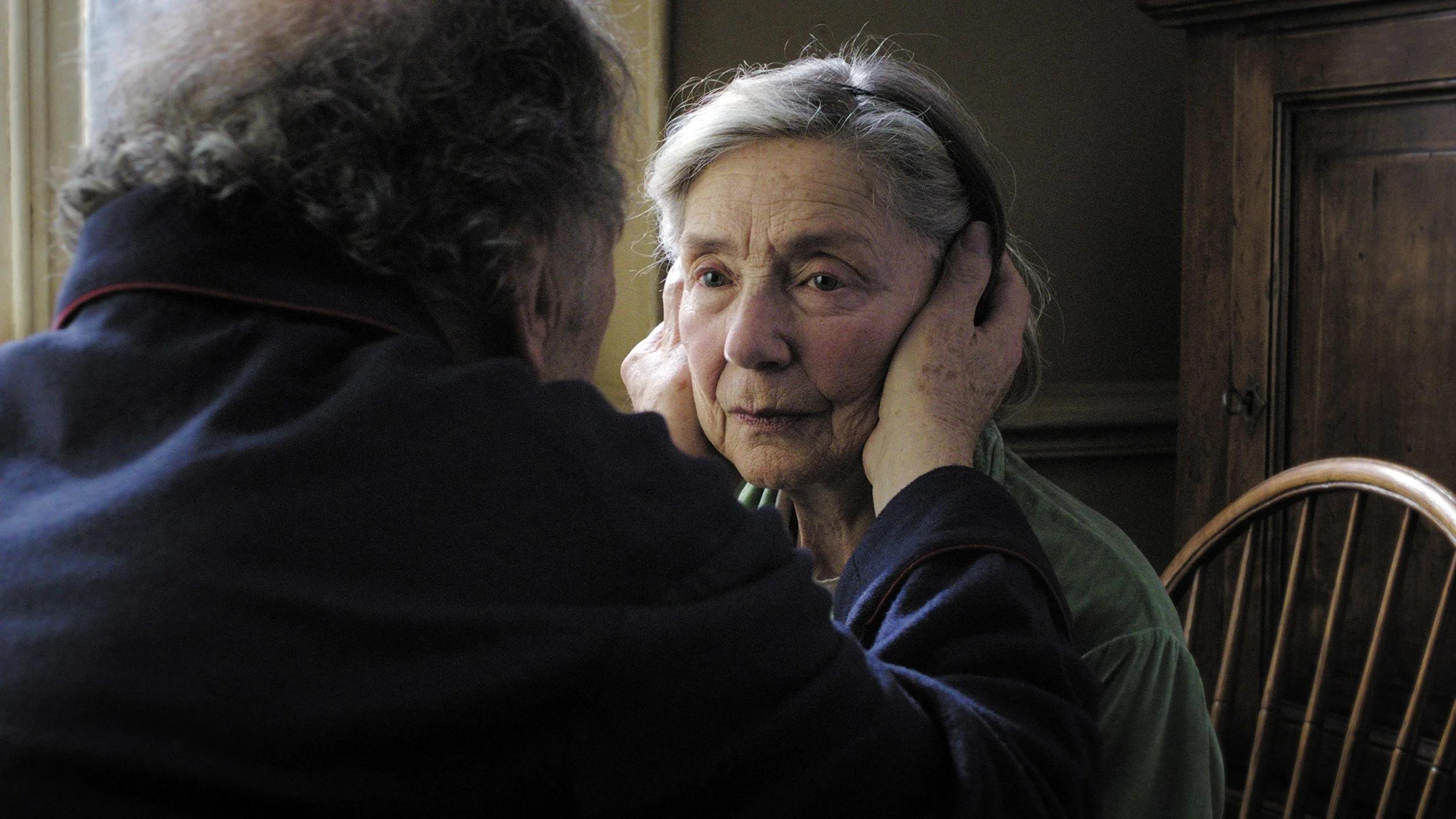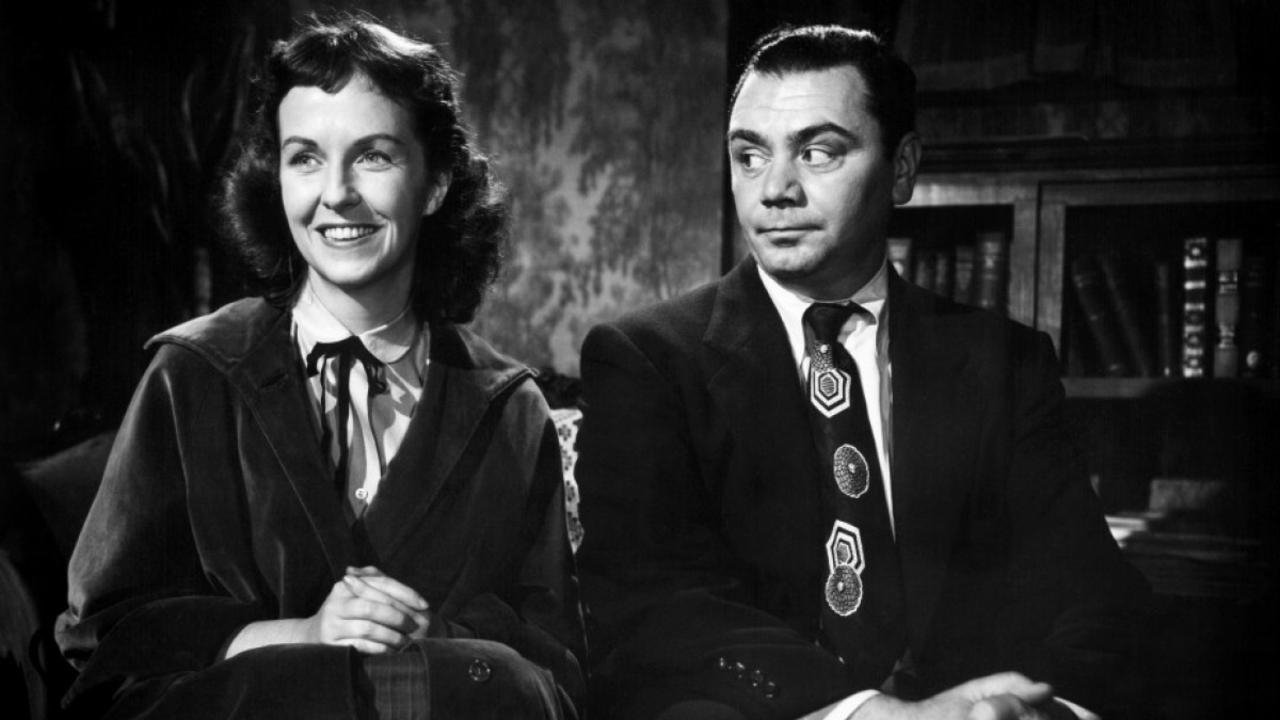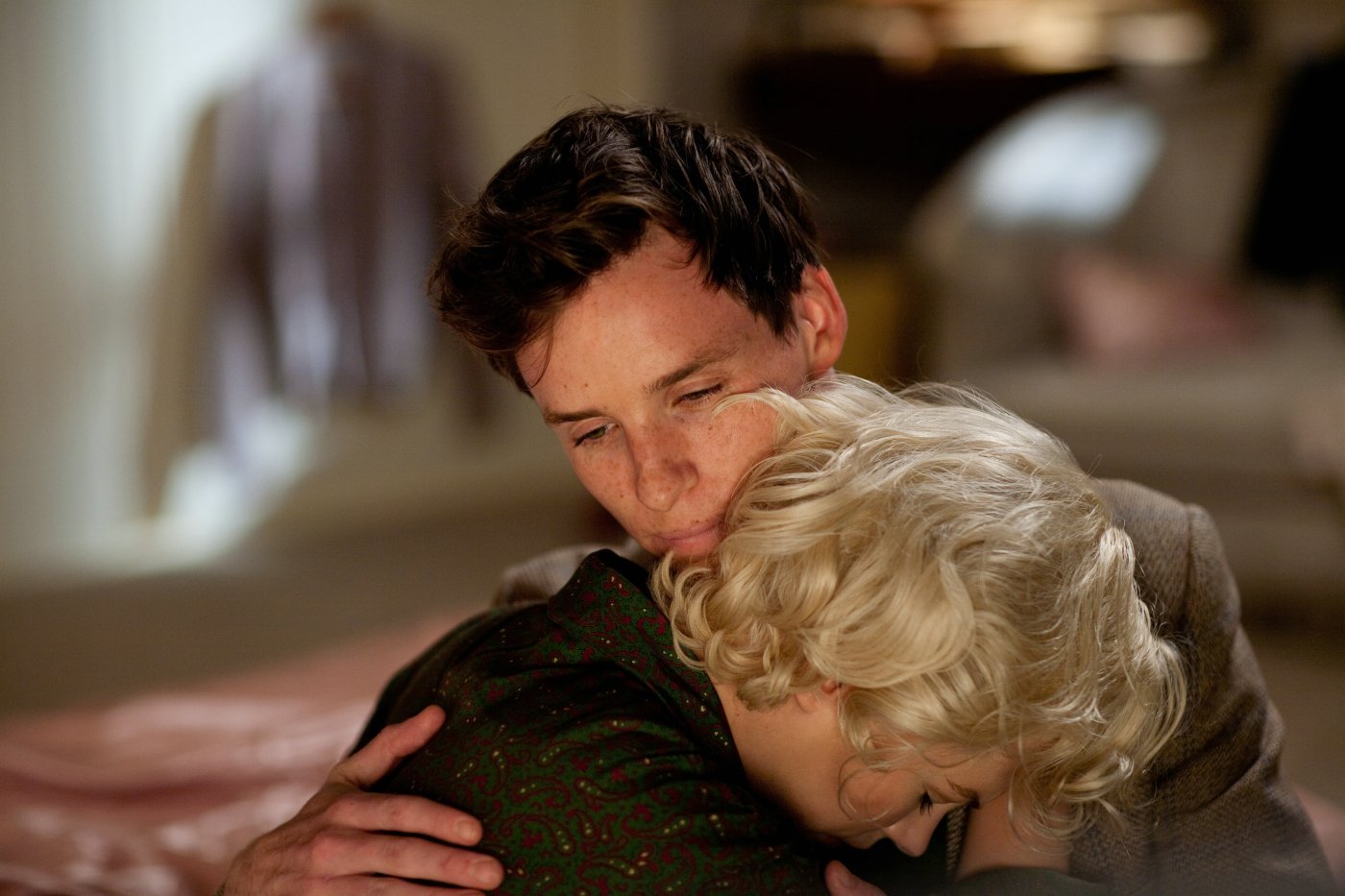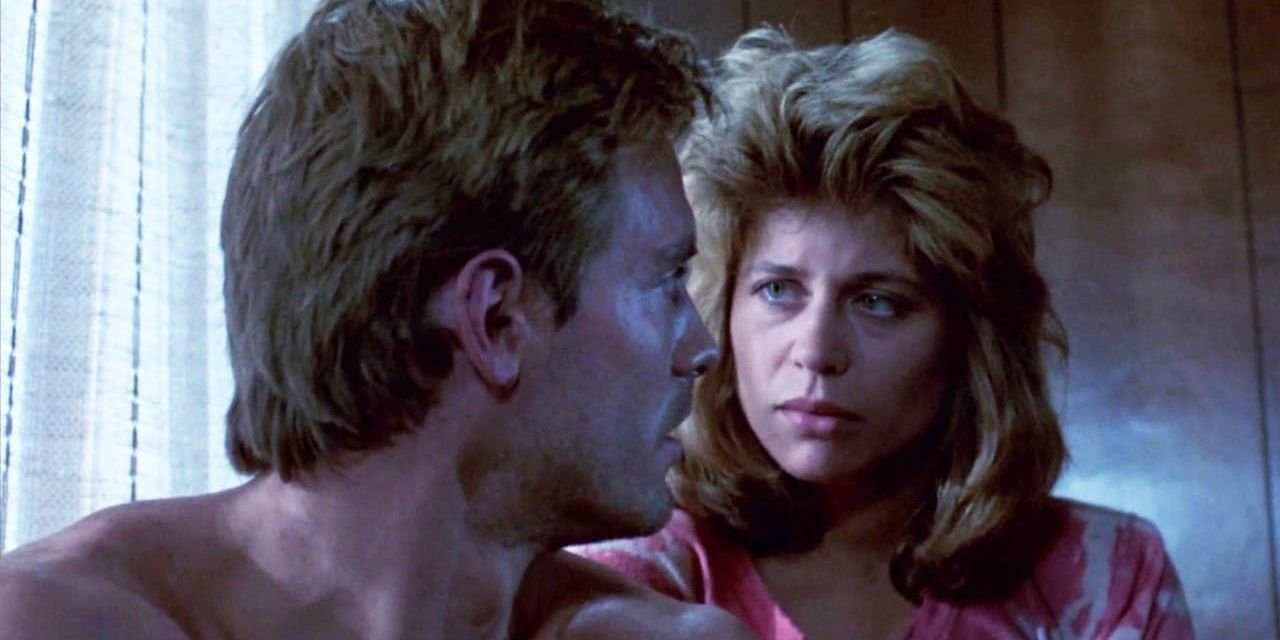The Best Unconventional Romances for Valentine's Day
Although there are plenty of romantic comedies and classical romances available for viewing on Valentine’s Day by amorous couples, people need to broaden their minds when they’re picking just what movie to watch on V-Day. Thus, this list won’t contain Titanic or Moulin Rouge! or When Harry Met Sally... or Beauty and the Beast, romantic classics that really anyone would think of when they think of the most romantic movies.
Instead, we seek to stretch the description of what just what makes a romantic movie by giving you a list of the best unconventional romances for Valentine’s Day. Most people would consider these primarily dramas or action films or sci-fi epics, but at their bruised, beating hearts, they’re romances, and far more romantic than most romantic comedies that hit the multiplex every February.
Here is a collection of some of the best unconventional romances for Valentine’s Day for you and your loved one to enjoy.
Amour (2012) dir. Michael Haneke
Even though the title of last year’s Palme d’Or winner is literally translated as “Love,” the fact that this is Michael Haneke, the bad boy of European intelligentsia directors, might give one pause. The film depicts the love between Georges (Jean-Louis Trintignant) and Anne (Emmanuelle Riva) in their twilight years. The title is not ironic; Georges and Anne are portrayed as truly in love with each other and a model of aging gracefully. However, how does romantic love hold up against the betrayal of aging and our weakening systems of support? While Amour may be less viscerally disturbing (no slit throats here) or formally challenging than his other films, the film is in keeping with Haneke’s thematic examination of seemingly well-adjusted people forced to face the traumas at the centre of their existence. Georges’s love for Anne is truly an example of romantic heroism. But what does it mean in the face of the decay of our bodies and inevitable death? — Anders
Drive (2011) dir. Nicolas Winding Refn
For all the genres it does incorporate, most people would never refer to Nicolas Winding Refn’s stylish thriller as a romance, but that’s what the film is when you dig down deep enough. The climactic sequence in the apartment elevator where Driver (Ryan Gosling) finally shows his love for Irene (Carey Muligan), before promptly stomping a man’s head to paste, is one of the most romantic gestures set on film in recent years. The way the lights in the elevator dim just as his hand sweeps her aside and he finally kisses her — romantic bliss! (...followed by appalling violence). Drive is a romance without words, but a romance nonetheless. — Aren
The Last of the Mohicans (1992) dir. Michael Mann
If you are only familiar with Daniel Day-Lewis for his unique villains (such as Bill the Butcher or Daniel Plainview) or his recent performance as Abraham Lincoln, and if you thought Michael Mann only made crime thrillers, then this period adventure-romance may come as a surprise. Following the 1936 film adaptation, Mann clears away most of the narrative underbrush from James Fenimore Cooper’s original novel (1826), and plants a larger-than-life romance at the centre of the story. Set in 1757 on the American frontier during the French and Indian War, a simmering romance gradually develops between rugged frontiersman Hawkeye (Day-Lewis) and general’s daughter Cora Munro (Madeleine Stowe) after Hawkeye and his adopted Native American family save Cora and her sister from a Huron war party. Their love defies social conventions, but Last of the Mohicans is more high adventure than social drama. As such, although the film contains scenes of memorable emotion (including one of the most convincingly passionate kissing scenes in a movie), there is also lots of tracking and evasion in the woods, scalping and musket fire, the siege of a fort, a thrilling canoe chase (yes, thrilling!), and heroic deeds and sacrifice. The exciting adventure and potent romance are magnified by the stunning landscapes and pulsing musical score. — Anton
Marty (1955) dir. Delbert Mann
A romantic film for anybody who feels like a schmuck or a dog or feels unlucky in love. Delbert Mann’s romantic drama starring Ernest Borgnine and written by Paddy Chayefsky is a heartfelt and observant look at aging romance, family, and social pressure. It follows the romance between Borgnine’s Marty, an overweight, unattractive butcher, and Betsy Blair’s Clara, a dowdy, unattractive schoolteacher. Their families don’t want them together and society sees them both as unappealing outcasts. Marty explores how difficult it is for people to realize their own romantic dreams, and undercuts the fact that the typical story of star-crossed lovers isn’t concerned with the plain and ordinary people of the world. — Aren
A Matter of Life and Death (1946) dir. Michael Powell and Emeric Pressburger
Love is a matter of life and death. That’s the message at the heart of Powell and Pressburger’s rousing technicolor epic about a British bomber pilot in WWII (David Niven) who should have died when he jumped from his burning plane without a parachute, and ends up falling in love with an American radio dispatcher (Kim Hunter) during his recuperation. The problem is that he has cheated death and so a heavenly court sends a supernatural messenger down to claim Niven’s debt. Niven and Hunter must argue with the heavenly court for Niven’s life, all the while human psychologists aim to cure Niven’s insanity through unnecessary lobotomy. It’s a touching film with gorgeous cinematography that champions the concept of love being the most powerful force in the cosmos. — Aren
The Matrix (1999) dir. the Wachowskis
While The Matrix is best remembered as a mind-blowing science fiction classic at this point, the romance between Neo (Keanu Reeves) and Trinity (Carrie-Anne Moss) rests at its very centre. It is a romance anchored in absolute belief in another individual which blossoms into romance. While Trinity begins as a skeptic, her faith in Neo grows as does their romance. Trinity’s belief in Neo as “the One” eventually holds against all odds, including seeming death. Love lurks behind securing release from the Matrix, as romance is held up as analogous to the quest for truth. Love can “pierce the veil” which shields us from a harsh reality, but the joy of love is presented as being worth suffering and even dying for. The Matrix suggests that a world without truth, however comforting, is also a world without a capacity for true love. How romantic. — Anders
My Week with Marilyn (2011) dir. Simon Curtis
Although marketed as a Marilyn Monroe biopic, My Week with Marilyn is primarily about aspiring filmmaker Colin Clark working as a production assistant on the set of the 1957 film The Prince and the Showgirl, which starred Laurence Olivier and Marilyn Monroe. The film is based on two books that Clark published about his experience, particularly his close but brief relationship with Marilyn. Although primarily a coming-of-age tale, the film nicely captures the infatuations, sexual tensions, and secret loves that shoot up in productions, or really in any close-knit temporary community. The three leads—Eddie Redmayne as the young and naive Colin, the great Kenneth Branagh as the great Laurence Olivier, and Michelle Williams as the gorgeous, sad Marilyn Monroe—are especially strong. The near adoration for Marilyn that Redmayne conveys is a potent reminder of the consuming power of a youthful crush. — Anton
The Terminator (1984) dir. James Cameron
Every James Cameron film is a love story. Whether it’s about romantic love (Titanic, Avatar, True Lies) or the love between parent and child (Aliens, T2), the guy is an emotional director, regardless of his action and genre credentials. The Terminator is possibly Cameron’s most touching romance, even though it’s also an amazing, electrifying sci-fi action film. Sarah Connor (Linda Hamilton) and Kyle Reese ‘s (Michael Biehn) relationship starts as a kidnapping, becomes a case of stockholm syndrome, and blossoms into a tragic love story. They may only share one night together, but the love between Connor and Reese is more interesting than the majority of onscreen romances. — Aren
Wild at Heart (1990) dir. David Lynch
In Wild at Heart, David Lynch portrays romantic love as nothing less than a wild and all consuming passion, a romantic symbol of “individuality,” and “belief in personal freedom” more striking than even Sailor’s (Nicolas Cage) snakeskin jacket. Sailor and Lula (Laura Dern) strike out on the road against all obstacles to their love, including her witch of a mother, voodoo spells, and terrifying hitmen, most memorably, Willem Defoe’s Bobby Peru. Encountering strange characters and multiple omens on their road journey across the American south, Sailor and Lula persist in pursuing their rock and roll fairy tale. Melding Lynch’s particular brand of weirdness with southern gothic (it’s remarkable to think this is a Palme d’Or winner), Elvis Presley, and the Wizard of Oz, Wild at Heart is perhaps one of the strangest and most perverse explorations of love on this list, but it is also perhaps one of the most overwhelmingly romantic in the true sense of the word. — Anders
So, what are your favourite movies to watch on Valentine's Day? What are your choices for the best unconventional romances for Valentine's Day?
This post has been updated with new images on February 14, 2022.









